|
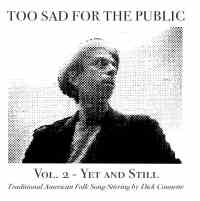
|
-
In his lovely, soulful second album as the collaborative Too Sad for the Public, composer Dick Connette reverently and sometimes irreverently takes the roughhewn spirit of American folk music and refines it like a hunk of whale bone etched into an elaborate, beautiful scrimshaw. On his latest, Vol. 2: Yet and Still, Connette mostly turns to Canadian-born and Brooklyn-based Ana Egge as the vocal focus of the songs with lyrics. Her bluesy drawl, reminiscent of a laidback, late-night, jazz-hipster, gives the songs a sardonic, wry sensibility.
Though known as a composer, he also shines as a lyricist. His sung stories have the resonance of folk wisdom, but he seasons his wisdom with wry touches of absurdist wit.
Read Marty Lipp's review and listen to some of the music.
|

|
-
Maria Ka makes it abundantly clear in her music that the personal is political. Ka lives in Poland, and she discovered that her family had covered over its Jewish roots; there were Jews in her father’s genealogy. This revelation led Ka to pursue Jewish studies and psychology at University in Krakow. It also led to further realizations: that the Yiddish language deeply resonated with Ka, and that her University program did not provide much by way of women’s studies... These interests permeate Der Hemshekh (‘The Continuation’), which she sings entirely in Yiddish. The sound world of the album is resolutely contemporary, primarily built around electronics and loops, oboe, drums, and Maria Ka’s vocals.
Read a little personal history and a review by Lee Blackstone.
|
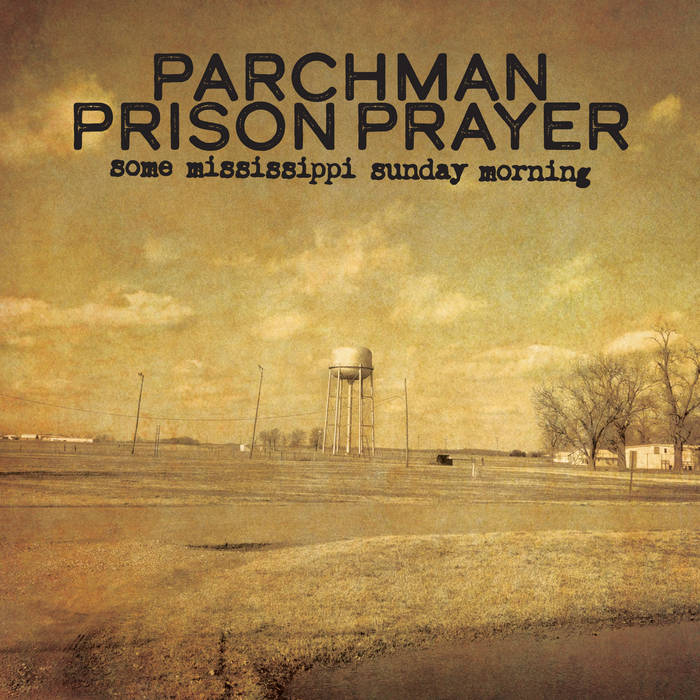
|
-
Parchman Farm is one of those names that echoes across the history of American music. It’s been the subject of songs by Bukka White and Mose Allison. Alan Lomax recorded there, making the first recordings of Leadbelly. It had the reputation of being a hell on earth. It’s the oldest penitentiary in the US, and it’s still there.
Producer Ian Brennan had been trying to gain access to the place for three years, and in February this year he was finally allowed in to record a Sunday service with just one week’s notice. Singers were drawn together for the session from a dozen different church services, some performing alone, others as part of a group. Brennan captured it, all live, with not a single overdub, and we get to hear the results in Parchman Prison Prayer: Some Mississippi Sunday Morning.
Read Chris Nickson's review and hear some of the recordings.
|
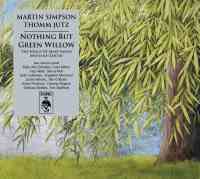
|
-
Martin Simpson has become an elder statesman among guitarists, his work on acoustic six-string and banjo simply devastating in its effortless style, and he’s rightly achieved a hero’s status for us. He’s a man who’s often made connections between the English and American traditions, and in Thomm Jutz, a German-born American bluegrass musician, songwriter, and Appalachian scholar, he’s found a perfect companion for this particular exploration. Nothing But Green Willow; The Songs Of Mary Sand And Jane Gentry presents music collected by British musicologist Cecil Sharp, from two women in Western North Carolina in 1916. Chris Nickson reviews this new album , as well as a reissue of some more American tunes recorded in the 1970s by The Scrub Jay Orchestra (Ian A. Anderson, Maggie Holland and Martin Simpson).
|

|
-
Chalk Horse Music is a project spearheaded by English singer Liz Pearson. It's an online-only project set in 'chapters' that focus on regional songs and sounds. Chapter Two includes "Turtle Dove" a song from West Sussex set in a new rhythm and ambiance. Pretty standard "I'll leave you for a while" kind of love song, but give a nice energy in this arrangement for voice, percussion, horns and strings. This is an ongoing and expanding project, so expect to hear more soon.
Sound Bites is our collection of short reviews, and well, sound bites.
|
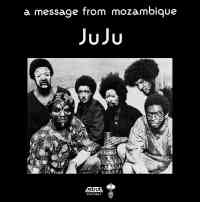
|
-
The past twenty years or so have given us a number of free and spiritual jazz reissues, many of which were made by ensembles who never recorded again, or whose output was confined to small imprints that were never able to offer any distribution... Saxophonist James Branch- aka Plunky Nkabinde- is a crucial part of this scene. Initially connecting with Zulu musician Ndikho Xaba in San Francisco, Plunky joined Ndikho and The Natives, another spiritual jazz group that only recorded a single LP (2022 saw this LP reissued in South Africa and the US). From there, he formed Juju. A Message from Mozambique, released in 1973 on Strata-East and then again on Washington DC’s Black Jazz label, is a much more raw affair. Juju’s shaggy ferocity valued passion over finesse.
Read Bruce Miller's review.
|
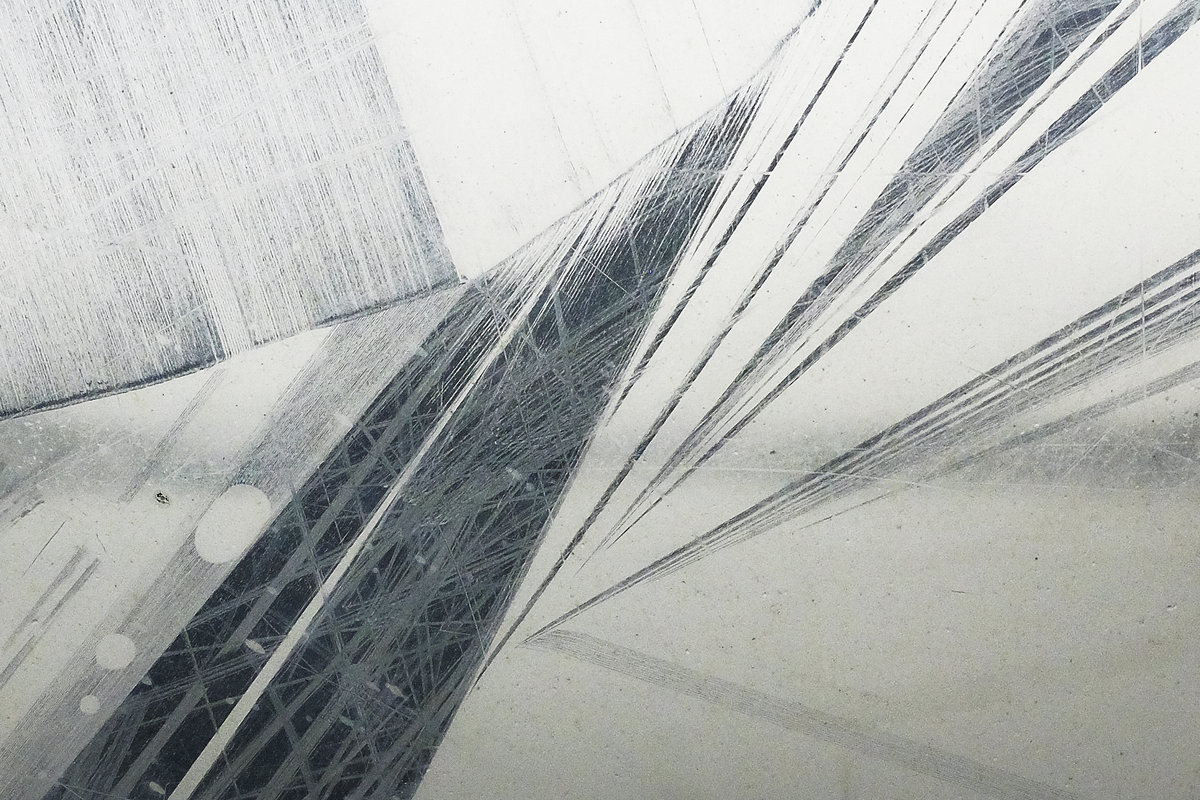
|
-
The opening track of Sarah-Jane Summers' latest album, Echo Stane, is the atmospheric “Airtan” which sets the mood with what is for the most part an exploratory piece of improvisation, one which can too easily prompt the reviewer to reach for over-used adjectives like “dark and brooding.” But this melancholic undercurrent is almost intrinsic to the sound of the Hardanger fiddle, even in the animated dance music, with the melodic tension shifting between the higher and lower strings. Here the lower string holds a drone while an upper string seeks out a melodic line, disconcertingly sliding up and swooping down, the center of gravity shifting and the bowing producing a range of grainy tones from the strings.
Read Mike Adcock's review.
|
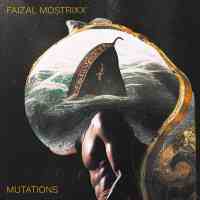
|
-
Choreographer, dancer, DJ, and musician Faizal Mostrixx’s Mutations comes at a moment when radical electronic and dance music from Eastern Africa is getting crucial global exposure. Experimenters such as Otim Alpha, Ocen James, and Nihiloxica- all from Uganda- have altered centuries-old rhythms and instrumentation from various parts of the country, sculpting them into dance-floor ready shapes as well as abstract make-overs... Mutations follows the sonic trajectory of 2022’s Transitions EP, in as much as it fuses field recordings with sometimes frantic synths and pads, at times coming off as a cousin to Chicago’s long-evolving footwork scene. Mostrixx’ mother was a dancer, and he grew up hearing imported pop sounds from nearby Congo and other neighboring countries. And because of the dominance western sounds still hold over the globe, his music naturally makes use of elements found in house, dub, down-tempo, and hip hop.
Listen in, and read Bruce Miller's review.
|
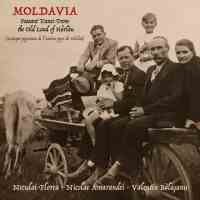
|
-
Moldavia - Peasant Tunes From The Old Land Of Hârlau presents recordings made in 2019, 2022 and 2023 by Neculai Florea, Nicolae Amarandei, Valentin Bălaşanu, in the traditionally Moldovan region of Romania in the counties of Iaşi and Botoşani in the north-east, near the border with Moldova, playing fiddle, cobza (a traditional pear-shaped lute with a very short neck), and wooden whistles.
Read Andrew Cronshaw's review and listen to some samples from the recordings.
|
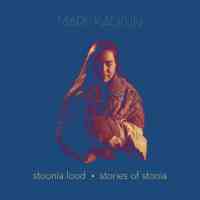
|
-
Stoonia Lood / Stories Of Estonia feels like an album that’s been gestating inside Mari Kalkun’s imagination for years, finally emerging into the light, as the singer and instrumentalist shows her Estonian homeland in its deep, raw nature, an antidote to the plastic shimmer of the 21st century. Her songs are filled with air and space, lightness and the grace of nature, and in British folkie Sam Lee, she’s found the perfect accomplice to bring it all to life... Vocally, she’s never sounded better, with the confidence of experience and the certainty of belief in what she’s doing.
Chris Nickson shares this new work from Estonia.
Chris Nickson shares this new work from Estonia with you.
|
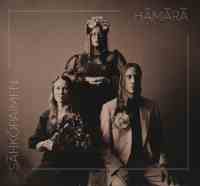
|
-
The name of this Finnish trio is a perfect description of their sound. Sähköpaimen translates as “electric shepherd,” and their music is a persuasive, heady mix of the contemporary and the rural, as Amanda Kauranne and Kirsi Ojala's wind instruments, mouth harps, and wild, uncontained vocals rub and roil against Eero Grundström's electronics and loops. Hämärä (Twilight) marks that time of day when the transition from the real world into the realm where magic happens, and the band explores the possibilities that lurk in the darkening shadows.
Read Chris Nickson's review and listen.
|

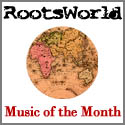
|
-
With advanced degrees in musical performance and voice, and captured by the culture, spirituality and music of Candomblé, Bahia-born Irma Ferreira began a profound investigation of her Afro-Brazilian roots. Candomblé is Brazil's New World iteration of African sacred practices, having evolved mostly from the Yoruba traditions of the West African countries of Nigeria and Benin... Ferreira's first solo album release, Ém Cantos de Orisá, bears the fruit of her investigation, borrowing both chants and melodies from Candomblé's trove of devotional works.
Read Carolina Amoruso's review and listen.
|
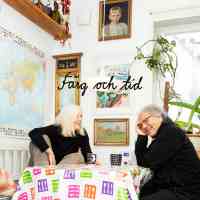
|
-
The lurching, wiggling rhythms of Swedish fiddle polskas, particularly those from the region of Dalarna, can be hard for the listener to grasp, though easier if one learns to dance them. The fiddler’s foot-tap can be a clue, but here, explored by the duo of leading fiddler Ellika Frisell and Mexican-born percussionist Rafael Sida, there’s much more help than that: a window on polska’s subtle internal rhythms and their possibilities. Färg Och Tid is no short-term fusion-type project; over the years that they’ve lived and played together, Sida has found ways to interpret and accompany Frisell that draw on his wide experience of the rhythms of the world, with his battery of hand and stick-hit percussion. Frisell, too, has connected polska with traditions from elsewhere, from her time with the mighty Filarfolket in the 1980s and her partnership with Senegalese griot kora-master and singer, the late Solo Cissokho.
Andrew Cronshaw explores the intuitive and deep connections in 'color and time.'
|
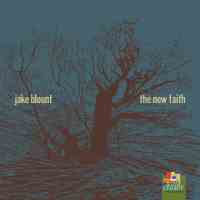
|
-
Singer, fiddler, banjoist, percussionist, scholar, and exponent of Black roots music and dance, Jake Blount presents a searing album alive with Old Testament fury, gospel revelation, and topical prophecy, an unsentimental tale of earthly destruction, suffering, and resilience set at the end of days. Drawing upon what W.E.B. DuBois dubbed "The Sorrow Songs," Southern ring shouts, African descendants enslaved in colonial Jamaica, Gullah-Geechee tradition, the blues, and sundry Lomax field recordings, Blount shares inspiration with Black Americana revivalists including Ranky Tanky, Our Native Daughters, The Carolina Chocolate Drops, and many more. The New Faith is best taken in as an operatic whole, from start to finish.
Read Michael Stone's review and listen to a number of tracks and 2 videos.
|
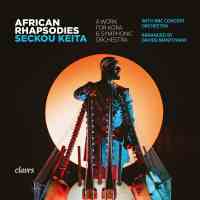
|
-
Sekou Keita, with his traditional background, skill and compositions, and Davide Mantovani's great abilities as arranger, bring to orchestral music a beautifully different set of musical ideas. No straightforward orchestration of kora melodies, African Rhapsodies is a series of full concerto integrations of kora and The BBC Concert Orchestra in which melodic lines and excursions come from both sides, so that they are no longer two, but a unified whole.
Read Andrew Cronshaw's review and listen to some tracks from the recording.
|


|
-
Aire posts Magos Herrera at the summit of her creativity and her agency. For the first time she holds the reins of vocalist, lyricist, composer, co-arranger, and executive producer, even artistic director, crafting, with an impressive supporting cast, a work all her own. Among the A-list players to join her are: Jacques Morelenbaum; Gonzalo Grau; Diego Schissi; Dori Caymmi; and her frequent collaborators, the Knights. The album is broad brushed with the ever-fluid notion of jazz, embellished with classical sounds, indigenous traditions, Latin, and Bossa Nova. Magos Herrera's deep luxuriant vocals, lending their way equally to all sensibilities, flow frequently into wordless song, allowing Aire to convey both the lightness and heft of air.
Carolina Amoruso reviews an album of stories in song.
Aire is our selection for July's Music of the Month. Find out how you can support RootsWorld and receive a copy of the album.
|
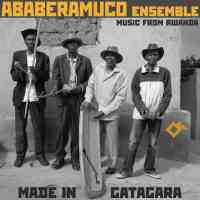
|
-
Rwanda has a rich musical heritage but one which is less widely know than those of some other African countries. One notable exception has been the music of Adrien Kazigira and his band The Good Ones who play acoustically but in a contemporary style with guitar, percussion and vocals. Ababeramuco's album Made in Gatagara has a much closer connection with the traditional music of Rwanda, both musically and in the instruments used, the band's name translating as “The Traditionalists.” There are four musicians: Gerard Rusatsi on the umuduri, a one-string bow played with sticks; Silvain Mutabaruks plays the iningiri, a one-string fiddle; Jean Marie Vianey, the inanga, a type of zither and Godefroid Ayirwanda, who plays a lamellophone known in Rwanda as an ikembe. All four contribute vocals and several tracks also feature unspecified percussion. Gatagara, named in the album title, is the village in whose neighborhood the four musicians live and play together.
Mike Adcock reviews.
|
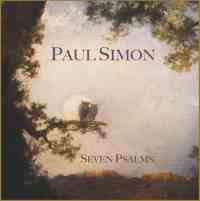
|
-
Paul Simon has chronicled his life in words for many decades, telling his stories as narrative fiction, wrapped in poetry and music. Lisa Sahulka has taken on the task of reviewing not only his new recording, but looking back on the biography in song, real or imagined, that he has spent his entire adult life creating.
Seven Psalms is a suite in seven-movements, an acoustic masterpiece and possibly the last conversation we are going to have with him. The album is based on The Book of Psalms, the first book of the third section of the Hebrew Bible called Ketuvim (Writings). These are hymns of doxologies or praise to God. However, his Psalms are skeptical and more realistic, in the sense that if God exists then we have to acknowledge this being as both omnipotent but also evil, inflicting pain and sorrow. “The Lord is my engineer…The path I slip and I slide on. …The Lord is a virgin forest. …The Lord is a meal for the poorest of the poor. A welcome door to the stranger.”
Lisa explores his new recording, in the shadow of the old.
Read Lisa's review and hear the album.
|
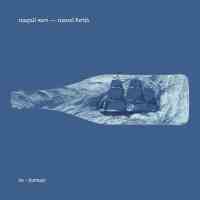
|
-
re-tornar sounds like New York City, with an unexpected lightning fast pace which can slow down and cool off like a Barcelona evening (where they both live). Bass player Fortià's time in New York City influenced his music and perspective. Magalí Sare has acknowledged her passion for Flamenco and tango music... She is a singer, flutist and percussionist both in the classical and jazz genres. The polytimbral quality to her voice adds immensely to their collaboration. re-tornar explores stories of
Read Lisa Sahulka's review and listen to some of the tracks.
|
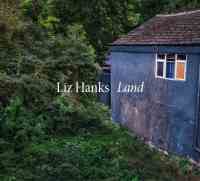
|
-
There can be a sober, noble sensibility about a solo instrument, and the cello, with its expressiveness so close to the human voice, is able to tug fiercely at the heart. In the right hands it possesses beauty and power, and Liz Hanks owns the right hands and imagination. She’s worked with people in folk music and beyond, but for Land, she has made her world shrink. Not simply to a lone instrument, or even to the Steel City, Sheffield, where she lives, but quite specifically her local area of Meersbrook. The tracks become a walk through its geography and history, as tactile as any mix of playing and field recordings can be.
Chris Nickson takes you on this serene walk.
|

|
-
Listening to these 3 albums by Sheila Chandra again, it’s hard to believe they’re around 30 years old. At the time they were released, they stood like beacons, unlike anything else out there, whether it was the slippery, abrupt turns of the konnokol mouth percussion that marked the “Speaking In Tongues,” to the reworking of the traditional English folk song “A Sailor’s Life,” where her vocal phrasing connected the piece to India, to the starkness of ABroneCroneDrone.
Chris Nickson looks back on these newly reissued, essential albums.
|
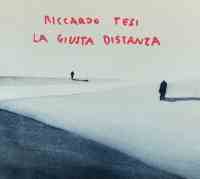
|
-
Riccardo Tesi is a leading virtuoso of the diatonic accordion (the push-pull button squeezebox known in English as a melodeon, in Italian as organetto), as well as a composer, soloist, and leader of many ensembles and theatrical projects. During the pandemic, he composed most of the twelve pieces on his latest work, La Giusta Distanza, where he is joined by a core unit of guitarist Viera Sturlini and percussionist Francesco Savoretti, forming the Elastic Trio, augmented by a cast of other instrumentalists and, on three tracks, singers.
Andrew Cronshaw shares his impressions of some of the music, and you can listen along as you read
|

|
-
The lost lithophones of Vietnam
In February of 2023 I made my second visit to Vietnam and my reason for going was again a musical one, summed up in one word: stone. For more than twenty years now I've had a thing about the way in which certain cultures of the world have chosen to produce music from this most unpromising of materials. Certain types of rock will ring when struck and, depending on length and thickness, can produce notes of identifiable pitch. Instruments which employ this principle are called lithophones.
It was Vietnam which really put lithophones on the map internationally. In 1949 some villagers in the Central Highland region unearthed a set of stone slabs and brought them to the attention of a French ethnologist living there at the time who reckoned they were a form of ancient musical instrument, promptly had them sent to Paris for further investigation and that's where they have remained to this day.
Mike Adcock decided to go to the source to find the stones and their players. Join Mike's journey into the fascinating world of a musical instrument little known to modern listeners.
|
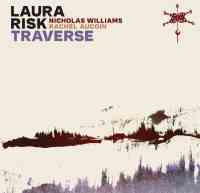

|
-
Fiddler Laura Risk and the two other members of this trio - Nicholas Williams on piano-accordion and flute, and pianist Rachel Aucoin - live in Québec, though none is originally from there. Risk is from California, the other two from other parts of Canada, but all are very experienced in Qúebécois music, indeed have received awards in relation to it and there are fine pieces from that tradition here. What particularly strikes me, though, is Risk's command of, and influence from, Scottish material and styles of melody and playing on Traverse.
Andrew Cronshaw reviews.
Traverse is one of our selections for Music of the Month for June. Find out how can subscribe and get this fine album and many more throughout the year.
|
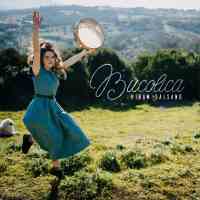

|
-
There is a wild boldness to Hiram Salsano's singing, plus a deep knowledge and understanding of her Italian tradition, and an originality to the arrangements, on her debut album Bucolica.
Salsano's focus is the traditional music of southern Italy, in particular that of her home region, the mountain areas of Cilento in Campania, to the south and east of Naples in western Italy.
Internationally, the best-known southern Italian traditional musics are probably pizzica and taranta, whose heartland is the Apulia region on the other side of Italy from Campania, but this isn't a taranta/pizzica album. Salsano's sources and music are much more varied.
Andrew Cronshaw reviews 'a splendid album from a very significant musician.'
Bucolica is our selection for Music of the Month for June. Find out how can subscribe and get this fine album and many more throughout the year.
|
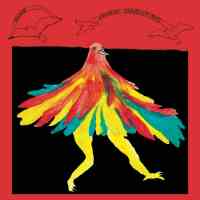
|
-
L'oiseau magnifique is a clever new album by a Geneva based trio named Alice that uses harmonic vocals and an electronic keyboard to create spare, folk-inspired, contemporary feminist song-poems. The group play on traditions from French and Occitan music to invent tunes about love, magic birds, trees and, amusingly, a really bad party. The trio is enchantingly described as employing 'a thrift-store synth, bizarre wit and arresting vocals... an intergenerational, all-female micro-choir.' L'oiseau magnifique is fresh and fun, with enough grit and weirdness to be reflective of the challenging now.
Come hear and watch them sing, and read Martha Willette Lewis' review.
|
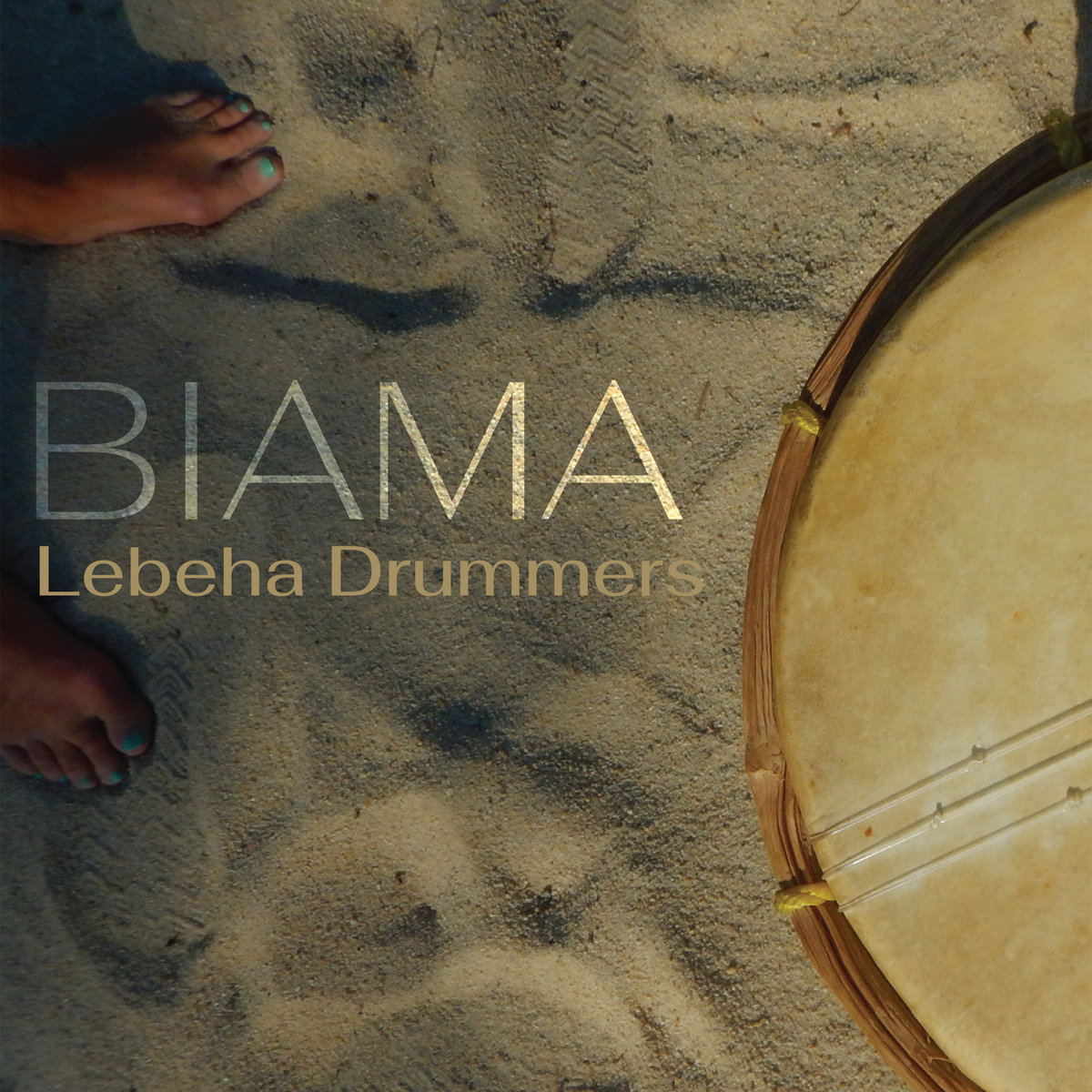

|
-
Lebeha Drummers formed in 2003 in Hopkins Village in Belize as an after-school program dedicated to nurturing and transmitting the music’s unique percussion, vocals, and dance styles to young Garifuna. Rooted in Garifuna spiritual practices, its energetic percussive character, dance movements, and vocals resonate with other West African and Amerindian genres brought together in a cultural efflorescence inadvertently sparked by the European colonial adventure in the erstwhile New World.
Biama is unique, however, in hewing to the traditional Garifuna roots of voice and percussion, versus the experimental acoustic and electric guitars, bass, sampling, etc. characteristic of the work of more contemporary Garifuna music luminaries.
Read Michael Stone's review and hear some of the music.
|

|
-
Til Kirsten is the second album by the Danish string and vocal trio Vesselil. It is very much a female album, not just the musicians themselves, but the subject: Liden Kirsten, who lived in the 12th century, and is the subject of quite a few ballads and stories that have been passed down through countless generations. A few of those old songs appear here, alongside traditional dance tunes and original pieces... the entire album is filled with gorgeous melodies, sublime voices and expert playing.
Chris Nickson reviews.
|
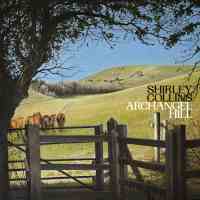
|
-
The renaissance of Shirley Collins continues on Archangel Hill, her third release since her 2016 return. This time around the production if fuller, a sound that does full justice to her voice. That voice is not the instrument of her young days, of course; she's 87 now, and she had decades away from performing. But now her singing carries the weight of experience - magnificent, full of a knowledgeable beauty. Her voice always had an unstudied, untrained simplicity and honesty; an innocence, if you will. That sense remains, but these days it’s a wonderfully weathered instrument, natural and affecting in its artlessness.
Read Chris Nickson's review and hear the music.
|
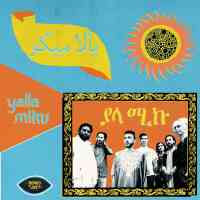
|
-
Collaborations by musicians from what we often consider “developed” nations and those still developing are popping up like mushrooms after a good soaking... we’re awash in electronic updates on traditional folk forms and strange, tough-to-pin-down experimentation that exists outside previously known sonic space. Yalla Miku, on the other hand, manages to pull from its members’ various heritages- Morocco, Eritrea, Algeria, and Switzerland to concoct a stew that reveals North and East African instruments and styles before wrapping them up in motoric hypnosis and post-punk jitters. The band, who call Geneva home, came into being when the European musicians connected with three North and East African immigrants, all three of whom have harrowing tales of hard travels and rough beginnings in their new home. Unlike the collaborators mentioned above, Yallu Miku neither dresses up the traditional in new clothes, nor largely eschews the musicians’ solo impulses. Instead, they reimagine what might be considered African or traditional in blankets of their own making, thanks to the musicians being physically connected with one another on a full time basis.
Read Bruce Miller's review.
|
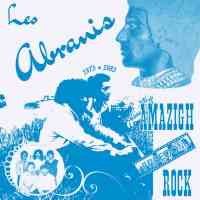
|
-
Les Abranis were made up of Kabyle Berber French Algerians, featuring two members, Shamy El Baz and Karim Abdenour, who met in Paris in the 1960s and bonded over a mutual love of rock and roll. So when they left France to play in a 1973 Algiers-based festival, they shocked the conservative country’s television and live audience by cranking out some seriously primitive garage-based rock antics and, more crucially, by singing in their native Kabyle, identifying themselves as belonging to a group that the Algerian government had discriminated heavily against since the country’s 1962 independence from France. So that TV appearance mentioned above shows a group that pushed at the boundaries of what Algerian music was at the time, and used their love of everything from Fela to James Brown to Hendrix, as well as their membership of a cosmopolitan North African diaspora in Paris to record music that still seems radical.
Hear the music while you read Bruce Miller's review of Amazigh Freedom Rock 1973-1983. (
|

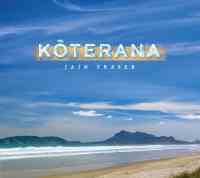
|
-
New England pianist Neil Pearlman's Refractions takes Scottish and Gaelic song airs as the basis for his solo piano improvisational development. The airs are varied, non-obvious and well-chosen, from a large variety of sources that show his extensive familiarity with the repertoires and compositions of present-day musicians and with the most interesting of the printed collections.
Much of Scottish fiddler Iain Fraser’s Kōterana is of his own composition, but like Pearlman, he draws on a discriminating choice of traditional Gaelic vocal and instrumental material from the past and present. Its title is the Māori word for Scotland, and it commemorates and evokes the globe-spanning journey by the Reverend Norman McLeod and his congregation, that began with him leaving Assynt in the West Highlands and culminated, via Cape Breton and Australia, with a Gaelic-speaking settlement in New Zealand. But even without any knowledge of the story it’s an album full of life and strong tunes.
Explore these new visions of Scottish music in Andrew Cronshaw's review.
|
Support RootsWorld. Subscribe to Music of the Month.
Browse more reviews from
2023
2022
2021
2020
2019
2018
2017
2016
We Interupt Our Regularly Scheduled Magazine For This Important Announcement.
RootsWorld cannot survive without the support of our readers. If you want to hear great music and read great writers, then we need each listener and reader to contribute just a little to make it happen. Please join us!
Make a One Time Contribution Today!
|
$5.00
|
$10.00
|
$20.00
|
|
$40.00
|
$70.00
|
$100.00
|
Please contribute to our survival.
About RootsWorld: RootsWorld is a world music magazine started in 1993, pretty much at the dawn of the term "world music" as well as the pre-dawn of internet publishing (I suspect this was the first music magazine of any sort published on the www). Our focus is the music of the world: Africa, Asia, Europe, Pacifica and The Americas, the roots of the global musical milieu that has come to be known as world music, be it traditional folk music, jazz, rock or some hybrid. How is that defined? I don't know and don't particularly care at this point: it's music from someplace you aren't, music with roots, music of the world and for the world. OK?
All pages at RootsWorld are © 1992-2023 RootsWorld/ Cliff Furnald / FNI Multimedia Publishing, New Haven CT
The RootsWorld name is protected by US trademark law.
All picture and sound images are the property of the artists and record labels, and are protected by copyright. No file or part of a file may be used for any purpose, commercial or non-commercial, without the express written consent of RootsWorld or the other copyright owners.
About the use of sound files and copyright protections at RootsWorld
|
